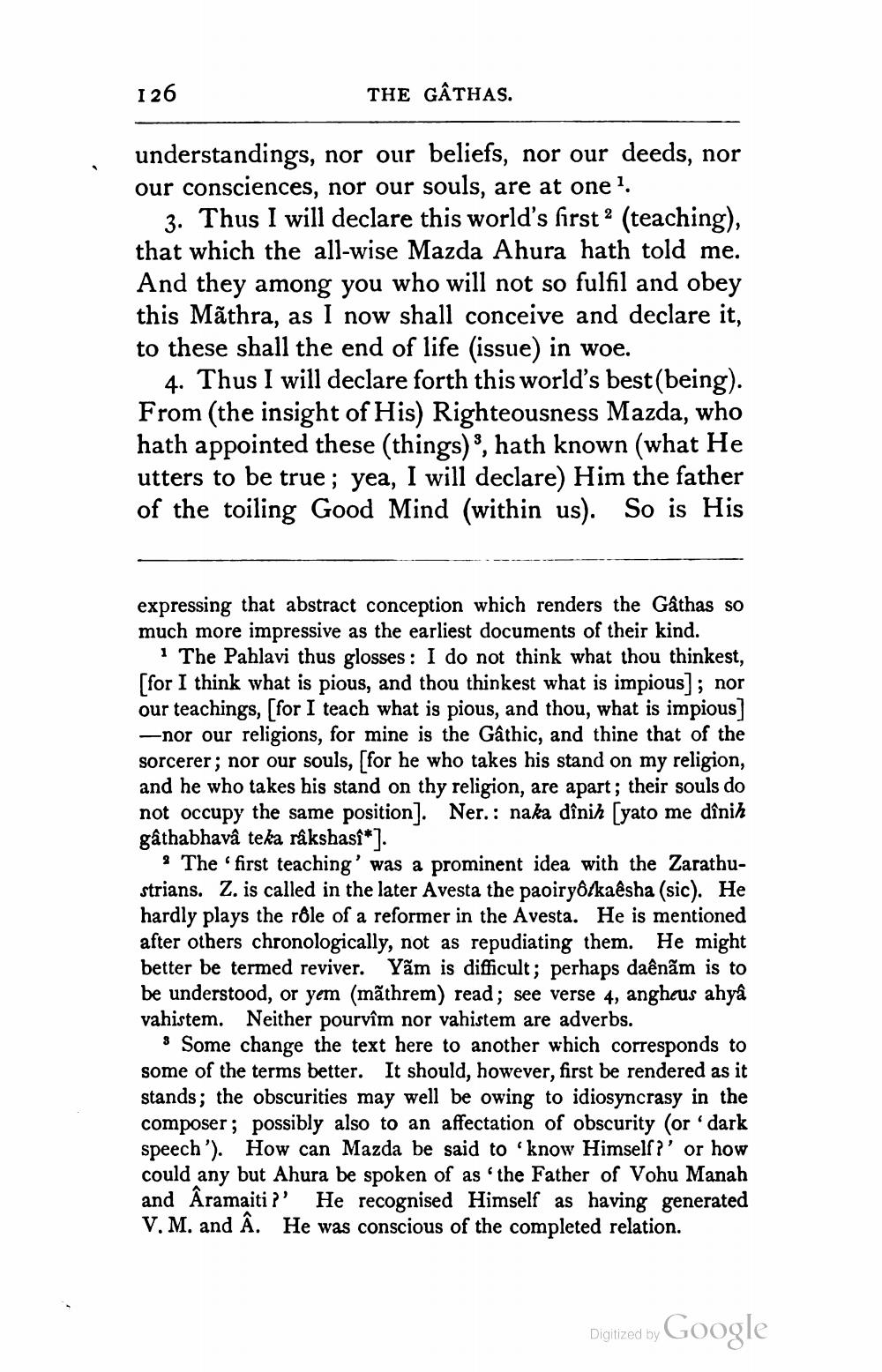________________
126
THE GÂTHAS.
understandings, nor our beliefs, nor our deeds, nor our consciences, nor our souls, are at one ?
3. Thus I will declare this world's first? (teaching), that which the all-wise Mazda Ahura hath told me. And they among you who will not so fulfil and obey this Mãthra, as I now shall conceive and declare it, to these shall the end of life (issue) in woe.
4. Thus I will declare forth this world's best (being). From (the insight of His) Righteousness Mazda, who hath appointed these (things) ?, hath known (what He utters to be true; yea, I will declare) Him the father of the toiling Good Mind (within us). So is His
expressing that abstract conception which renders the Gåthas so much more impressive as the earliest documents of their kind.
1 The Pahlavi thus glosses: I do not think what thou thinkest, Sfor I think what is pious, and thou thinkest what is impious); nor our teachings, [for I teach what is pious, and thou, what is impious] —nor our religions, for mine is the Gâthic, and thine that of the sorcerer; nor our souls, (for he who takes his stand on my religion, and he who takes his stand on thy religion, are apart; their souls do not occupy the same position]. Ner.: naka dinih (yato me dînih gâthabhavâ teka råkshasi*).
The first teaching' was a prominent idea with the Zarathustrians. Z. is called in the later Avesta the paoiryolkaêsha (sic). He hardly plays the role of a reformer in the Avesta. He is mentioned after others chronologically, not as repudiating them. He might better be termed reviver. Yãm is difficult; perhaps daênãm is to be understood, or yem (mãthrem) read; see verse 4, angheus ahya vahistem. Neither pourvîm nor vahistem are adverbs.
Some change the text here to another which corresponds to some of the terms better. It should, however, first be rendered as it stands; the obscurities may well be owing to idiosyncrasy in the composer; possibly also to an affectation of obscurity (or 'dark speech'). How can Mazda be said to know Himself?' or how could any but Ahura be spoken of as 'the Father of Vohu Manah and Aramaiti ?' He recognised Himself as having generated V. M. and A. He was conscious of the completed relation.
Digitized by
Digitized by Google




